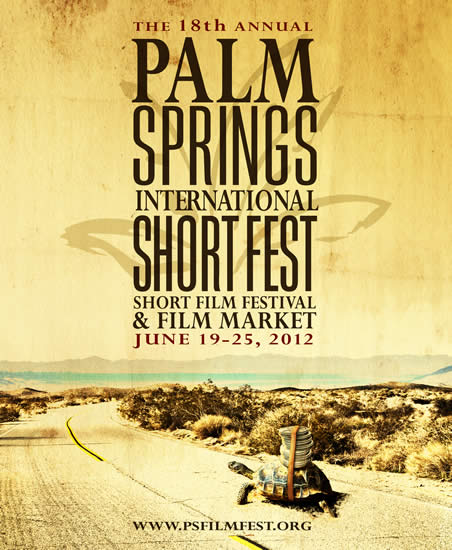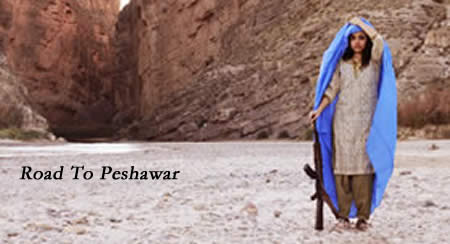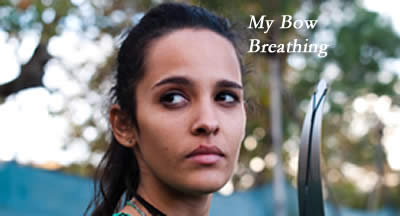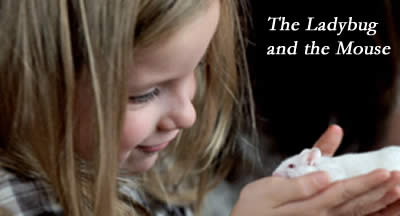 The 2012 Palm Springs International ShortFest & Film Market, was opened yesterday, June 19th. Festival will continue until June 25th and total of 323 films, selected from more than 3,000 worldwide entries will be screened. Now in its 18th year, ShortFest will showcase 50 World Premieres, 63 North American Premieres and 21 U.S. Premieres. The selection of films for screening and competition features star-studded casts and award-winning films from 52 countries around the world. All selections are structured into 53 themed programs, which will screen at the Camelot Theatres in Palm Springs; with all Festival submissions available in the ShortFest Market. The complete line-up has been posted on www.psfilmfest.org
The 2012 Palm Springs International ShortFest & Film Market, was opened yesterday, June 19th. Festival will continue until June 25th and total of 323 films, selected from more than 3,000 worldwide entries will be screened. Now in its 18th year, ShortFest will showcase 50 World Premieres, 63 North American Premieres and 21 U.S. Premieres. The selection of films for screening and competition features star-studded casts and award-winning films from 52 countries around the world. All selections are structured into 53 themed programs, which will screen at the Camelot Theatres in Palm Springs; with all Festival submissions available in the ShortFest Market. The complete line-up has been posted on www.psfilmfest.org
At Cinema Without Borders we have made it into a tradition to interview Festival Director Darryl Macdonald every year and our visitors have always welcomed these informative interviews.
Bijan Tehrani: We are here again at the Palm Springs International ShortFest.. What is new this year and what is the panorama for 2012?
Darryl Macdonald: Firstly, the panorama of the festival is that we hope to cast a wider net than ever before. This year we have 53 countries represented in the Short Film lineup, a larger number of countries than we have ever had represented before. Selected from more than 3,000 worldwide entries, our lineup will encompass 325 films and among those films over 120 are US premieres making their theatrical debut at the festival.
BT: Will we see any international filmmakers at the Palm Spring Festival this year?
DM: Absolutely. Last year we had 406 filmmakers from all corners of the world; this year we anticipate that number will be up to at least 425 and we have filmmakers confirmed to be coming from as far as Singapore, Russia, Bolivia, Chile, South Korea… literally all over the world. Last year I think we had 17 filmmakers from Australia and their numbers look to be larger this year; virtually every country in Europe is represented with a guest at the festival, as well as guests from right here in the good old US of A. 
BT: Every year you see a kind of theme with the majority of the films, do you see a common theme in this year’s festival?
DM: I think one of the biggest themes are films that are unclassifiable. Of course we have the usual coming of age stories, the usual family stories, whether they be comedies or dramas, we have war stories, stories about conflict, we have animated films, we have documentaries on a wide variety of subjects… but one thing that really has emerged this year is the number of films that are not easily classifiable, or that mix genres or themes. From my perspective I think it is a really healthy thing and I think it says something about the world of Short filmmaking. I mean, we had films like “Companion” from Peru, “Eli Pratt” from Australia, or “A Function” from South Korea, I could go on and on; these are all films that do not lend themselves to easy characterization, they are all very original in some way and generally focused on character more than plot. It reminds me of the freedom that filmmakers felt during the French New Wave era, which was thought of as the golden age of American films back in the 70s – filmmakers are now taking films in a different direction.
BT: I have noticed that there is such a higher quality of filmmaking than years before. DM: That has been continuing year after year, over the last decade. It used to be, BT, and I am talking about 8 years ago, that a number of films that were submitted would be discarded pretty rapidly simply because the technical quality of the filmmaking was not anywhere near the level of the other films in the running. That has all changed and I can only assume that it is the advent of cheap technology and the fact that young filmmakers with minimal budgets now have access to very technical cameras and sound equipment and so on… It is allowing them more freedom in how they shoot and edit their films , enabling them to tell their stories in a much more succinct way and with higher quality.
DM: That has been continuing year after year, over the last decade. It used to be, BT, and I am talking about 8 years ago, that a number of films that were submitted would be discarded pretty rapidly simply because the technical quality of the filmmaking was not anywhere near the level of the other films in the running. That has all changed and I can only assume that it is the advent of cheap technology and the fact that young filmmakers with minimal budgets now have access to very technical cameras and sound equipment and so on… It is allowing them more freedom in how they shoot and edit their films , enabling them to tell their stories in a much more succinct way and with higher quality.
BT: The improvement of the quality of storytelling is also important.
DM: Absolutely. We also consider that this must come from a large number of film school grads that have emerged over the past decades. They are learning how to use these tools better but I think that there is something there like genre bending, stepping out of the box, telling stories in fresh ways and taking new approaches to storytelling, not thinking that they have to do a genre film that hits all the right beats and follow the things that they would teach you in a screenwriting course the way they have been teaching over the past couple of decades. It makes for more compelling storytelling.
BT: Are there any side events or seminars that are happening at the festival?
DM: So much: we have expanded our forums segments, we’ve made them much larger and they are much more ambitious as well. This year in addition to all of the programs, we will also be doing standard panel discussions with very high profile guests. We also have a  couple of very major master class programs and I am really delighted that Robert Elswick will be here, who won the Oscar for “There will Be Blood”. He also did “Goodnight and Good Luck” and the recent “Mission Impossible: Ghost Protocol”. We will be showing clips from his films and he will be talking about his work over the years with great directors and producers. We will also be giving a real focus on how to use the new tools that are out there to shoot better pictures and tell stories in a more compelling way and I am equally excited about our Spirit of Short Film Award presentation which will be a master class with Gus Van Sant who will be attending short fest for the first time! We will be doing a program with him focusing on his work with both feature and short filmmaking over the past 20 years. Here is a filmmaker who has really broken new ground in both the short and feature film world, who is his own muse and is not making conventional pictures. The majority of his films have the stamp of an auteur, highly original works that approach their subject matter in unexpected ways. In addition to those programs we also have two days of table discussions, where there will be two industry professionals from a variety of fields, managerial backgrounds, agents and filmmaking backgrounds; there will be 3 professionals with 6 of our attendees of the festival in an informal discussion where there is no set subject and any of our industry professionals can offer up the answers, it should make for some very exciting discussions and really lively forums, so I am really pleased with the way we have expanded the forums this year. We would not have been able to do this though without a grant that we received from the Academy of Motion Picture Arts and Sciences, specifically to expand our forum programs.
couple of very major master class programs and I am really delighted that Robert Elswick will be here, who won the Oscar for “There will Be Blood”. He also did “Goodnight and Good Luck” and the recent “Mission Impossible: Ghost Protocol”. We will be showing clips from his films and he will be talking about his work over the years with great directors and producers. We will also be giving a real focus on how to use the new tools that are out there to shoot better pictures and tell stories in a more compelling way and I am equally excited about our Spirit of Short Film Award presentation which will be a master class with Gus Van Sant who will be attending short fest for the first time! We will be doing a program with him focusing on his work with both feature and short filmmaking over the past 20 years. Here is a filmmaker who has really broken new ground in both the short and feature film world, who is his own muse and is not making conventional pictures. The majority of his films have the stamp of an auteur, highly original works that approach their subject matter in unexpected ways. In addition to those programs we also have two days of table discussions, where there will be two industry professionals from a variety of fields, managerial backgrounds, agents and filmmaking backgrounds; there will be 3 professionals with 6 of our attendees of the festival in an informal discussion where there is no set subject and any of our industry professionals can offer up the answers, it should make for some very exciting discussions and really lively forums, so I am really pleased with the way we have expanded the forums this year. We would not have been able to do this though without a grant that we received from the Academy of Motion Picture Arts and Sciences, specifically to expand our forum programs.

